Archive for September, 2011
How to Ask out an Apple
Hello there Paul!

I understand you’re staying in England to learn the language.
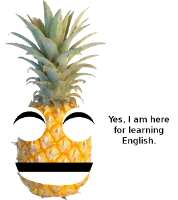
That should be “I am here to learn English.”
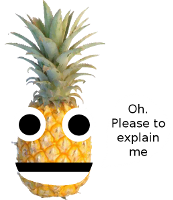
I think you mean “Please explain to me.”
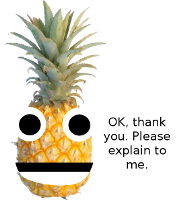
Well, you were explaining your reason for coming to the UK. In English, we explain our reasoning by saying I am [present continuous verb] to [verb].
For example:
- “I am reading to learn.”
- “I am running to catch up.”
We would not say “I am running for catching up”.

So, Paul, how has your week been?
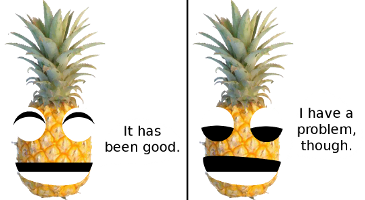
Oh yes? And what is that?
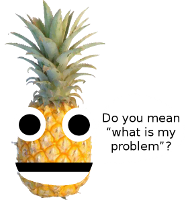
Yes, “that” can be used in a similar way to “it” to refer back to a previous subject, such as your problem.
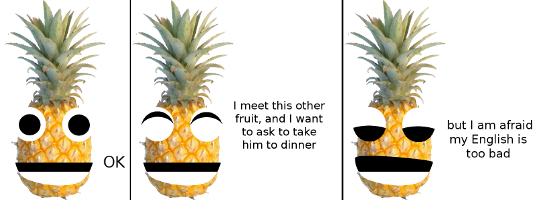
Well, I’m not the best person to ask for romantic advice, but I can certainly help you ask him out with good English. Tell me what you are going to say to this fruit.
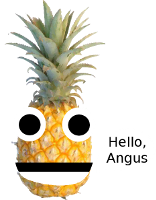
Good so far.
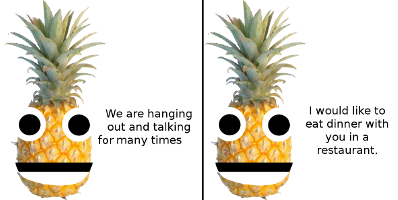
Hmmm, well, what you want to say is understandable, but there are a couple of grammatical errors and the second sentence would be phrased differently by a native speaker.
I’ll deal with the second sentence first. A native speaker would be more likely to say “Would you like to come to dinner with me?” This allows Angus to answer a question, rather than be faced with a statement of fact that needs no answer.
The first of the two errors I’ll deal with is where you said “for many times”. First, the word “for” doesn’t go with the phrase “many times”; “many times” just goes by itself.
- “I threw the ball many times.”
However, you are talking about two types of event (hanging out and talking) that occurred on more than one occasion. English has various words to cover this, for example: a lot, often, frequently.
So the difference can be characterised like so: When you play squash, you hit a ball against a wall many times. If you play squash each week, then you play it frequently.
The final thing I would change is the tense of your opening sentence. “We are hanging out and talking” means that that is what is currently going on, but “many times” means that this is something that has happened before. What you want to indicate is that hanging out and talking have happened in the past, and each time is complete, i.e. not still ongoing. For this, English has a tense called the present perfect.
Examples include:
- “I have been to the doctor.”
- “We have gone on holiday.”
- “They have eaten us out of house and home.”
To form the present perfect you take have and add the past tense of the verb. So in your sentence you want to say, “We have hung out and talked“.
So Paul, what are you going to say to Angus?
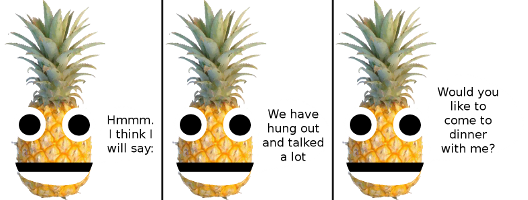
Excellent. To make it clear that you enjoy Angus’s company, you could add “, which I enjoyed very much.” to the end of the first sentence. So it would become “We have hung out and talked a lot, which I enjoyed very much.” This would emphasise how you feel about Angus, and hopefully persuade him to say yes!

No problem. Go get him!
